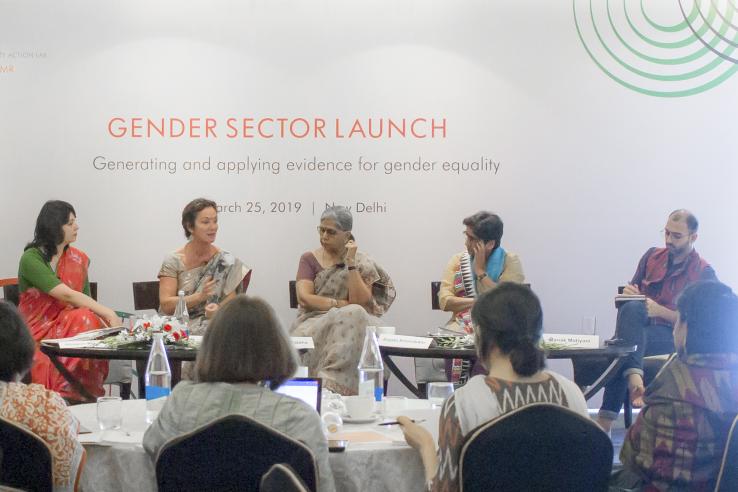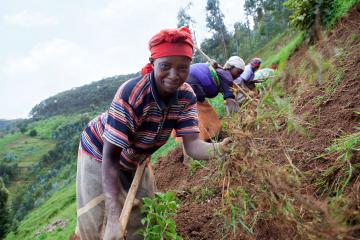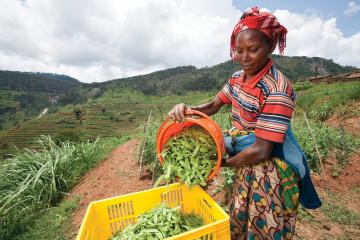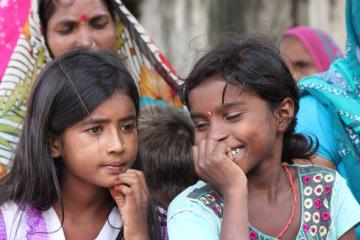Catalyzing new partnerships for gender equality in South Asia

Gender inequality is global and pervasive. Amartya Sen estimates that over 200 million women are “missing” worldwide. Moreover, women and girls experience disproportionate levels of intimate partner violence and economic, political, and social discrimination across the world.
Launched in 2018, J-PAL’s Gender sector addresses these disparities by producing cross-cutting insights on promoting gender equality and women and girls’ empowerment, and on how norms related to gender affect the outcomes of social programs. In South Asia, the Gender sector will identify research gaps, establish an initiative to fund new research, and synthesize and disseminate evidence to a variety of stakeholders including policymakers.
On March 25, 2019, 75 program implementers, evaluators, and donors convened in New Delhi to formally launch J-PAL’s gender sector in South Asia and discuss the current context and future priorities for the sector.
Shagun Sabarwal, Associate Director of Policy and Training, welcomed the audience with an overview of the goals of the J-PAL South Asia office’s gender sector team: to think about gender in an intentional and strategic way, to build on the innovative work already happening in the region on gender equality, and to catalyze new evaluations by establishing a fund for gender research in South Asia.
In the keynote address, Seema Jayachandran (Northwestern University), chair of J-PAL’s gender sector, spoke about the recent evaluation of Breakthrough’s school-based gender attitude change program, and also highlighted J-PAL’s practical guide to measuring women’s and girls’ empowerment.
The first panel of the day, moderated by Shobhini Mukerji, Executive Director of J-PAL South Asia, was titled “What we are measuring, what we are missing.” The session focused on identifying gender-related problems in South Asia and the challenge of measuring certain constructs. Rohini Mukherjee of the Naandi Foundation provided a succinct description of her work on the Teen Age Girls (TAG) report, which presents new information about an underserved group. Seema Jayachandran discussed the role of impact evaluations in building a knowledge base for the gender sector as well as her current work on measuring women’s agency. J-PAL affiliate Sharon Barnhardt (CESS Nuffield - FLAME University) elaborated on her study on better policing in response to intimate partner violence.
Moving from problems to solutions, the second panel, titled “Innovative and Intersectional Programming,” focused on community-oriented approaches to addressing emerging challenges in gender. Shagun Sabarwal moderated this panel, and Meagan Fallone started off the discussion with a powerful description of Barefoot College’s work on gender, with a particular focus on how NGOs can harness technology for progress. Harvinder Palaha described the comprehensive model used by SNEHA to address maternal and newborn health disparities in Mumbai. Manak Matiyani then presented on The YP Foundation’s work, urging the audience to focus on the larger goal of gender-transformative programming—that is, programming which challenges and transforms unequal power structures—and to think beyond commonly used indicators of progress. Sujata Khandekar of CORO concluded with a reflection on the significance of community-led programs in gender, as both innovation and intersectionality are contingent on cultural context.
The closing panel, “Investing in Equality, Empowerment and Agency at Scale,” was moderated by Iqbal Dhaliwal, Executive Director of J-PAL Global, and laid out strategies for investing in new research and programs. Naghma Mulla of Edelgive Foundation explained how the organization identifies innovators and takes chances on small organizations doing excellent work. Navsharan Singh discussed IDRC’s focus on producing knowledge on institutional and structural violence, and making institutions work for women. Mamta Kohli reflected on how DFID uses evidence and data to make the right decisions and improve people’s lives. Yamini Atmavilas of the Gates Foundation spoke about the value of a formal commitment to a sector in mobilizing investment and creating a channel for intentional and meaningful work on gender.
It was a day of incisive discussion and the forging of new partnerships. Participants left thinking about the power of collaboration, the significance of cultural context, and the need to include men and boys in the narrative on gender.
The day ended with a surprise appearance by Abhijit Banerjee, J-PAL co-founder and director, who concluded by reflecting: “Our strength is in being a network where many people can take responsibility. There is value in us coming together and pooling knowledge, and applying the gender lens to existing evidence”
To learn more about the Gender sector’s work in South Asia, contact Shruti Jagirdar ([email protected]) or Moulshri Mohan ([email protected]).



